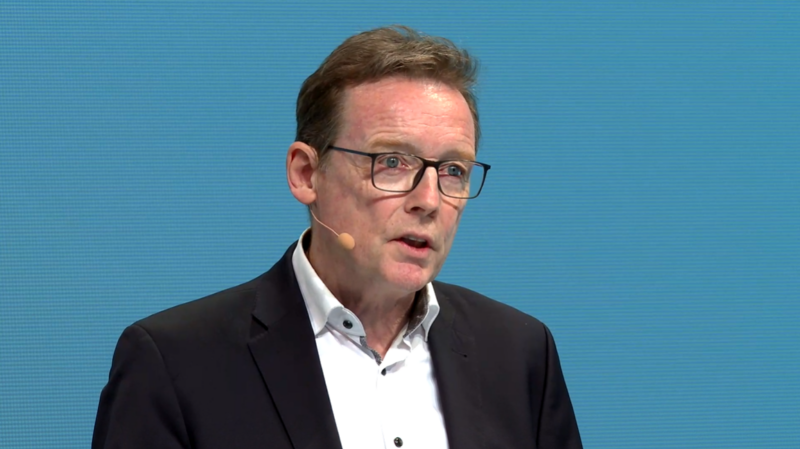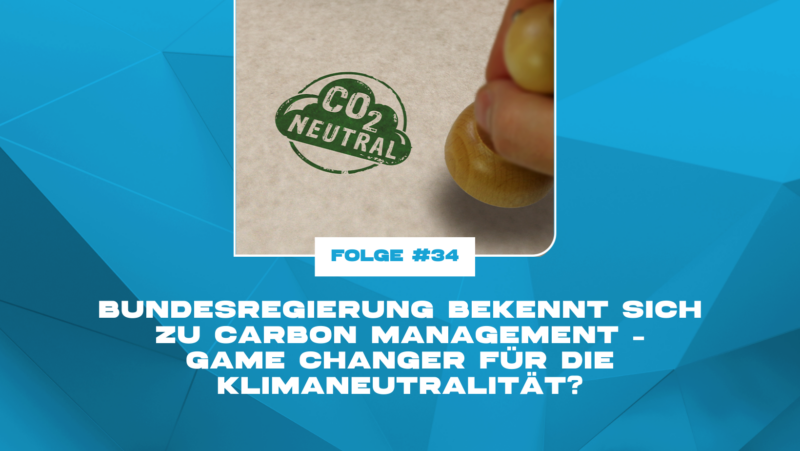Stellungnahme | 6. Juli 2023
#CCUS#Positionen & Stellungnahmen
BVEG-Stellungnahme zur EU-Konsultation „Net Zero Industry Act“
Der Net Zero Industry Act (NZIA) erkennt CCS als eine von acht strategischen Netto-Null-Technologien an, die dazu beitragen wird die EU-Klimaziele zu erreichen. Das begrüßen der BVEG und seine Mitgliedsunternehmen. Um das volle Potenzial von CCS auszuschöpfen sollte die gesamte CCS-Wertschöpfungskette gestärkt und ein breites Angebot für alle Emittenten geschaffen werden. Welche Anpassungen und Klarstellungen dafür in der aktuellen Fassung des "Net Zero Industry Act" notwendig sind, lesen Sie in der folgenden BVEG-Stellungnahme zur EU-Konsultation.
BVEG Statement
On the EU-consultation: “Net Zero Industry Act”
BVEG welcomes the NZIA’s recognition of CCS as one of eight equally valid strategic net-zero technologies and its unique ability to contribute to achieving the EU’s climate targets. To realise the full potential of CCS, it makes sense to strengthen the entire CCS value chain and create a broad offer for all emitters.
To achieve these goals, we believe that some adjustments and clarifications are still needed in the current version of the NZIA. Above all, the following overarching points should be taken into account:
- Consideration of the entire CCS value chain
The NZIA rightly recognises the need to create sufficient storage capacity to kick-start the CCS value chain and a CCS market. However, simply requiring oil and gas producers to provide storage capacity will not make CCS a success. More political support is needed for CO2 to be effectively captured, transported, processed and permanently stored. This is the only way to ensure that all companies along the CCS value chain have viable and sustainable business models, underpinned by signed agreements, with fixed locations, capacities and timelines. Setting up CO2 storage facilities that are ultimately not used (stranded assets) would neither be beneficial for European industry nor the climate. - Acceleration of approval procedures/project implementation
In order to achieve the set targets, it is essential to use all possibilities to accelerate projects. While several storage projects are already known in the EU to be operational by 2030, only two of them have obtained a permit on the basis of the EU CCS Directive 2009/31/EC. They are expected to provide a total CO2 injection capacity of 3.8 Mt CO2 per year by 2030. The NZIA, however, requires 50 MtCO2 per year by 2030. This alone shows the importance of speeding up the approval process. Most of the projects are in very early stages of development and need to be approved quickly, so that they are available by 2030.
The development of CO2 storage facilities is a complex project and its success depends on many factors beyond the control of the developer. Recent assessments show that it can take 10 years and even more for a storage facility to become operational (Global CCS Institute, Section 5.8, Figure 28). Even if all project phases are completed within the minimum deadlines, project durations of less than 5 years from project start to injection commissioning are not achievable. This is also due to the required permitting steps. Although the NZIA provides for the acceleration of net zero technologies by measures such as the “One-Stop-Shop” or specifications on the maximum time span of authorisation procedures, it must also be ensured that these will have sufficient effect in the member states.
We therefore consider it indispensable that CCS projects are given priority in the respective national infrastructure development plans and administrative procedures, supported by corresponding concrete infrastructure acceleration laws. This is the only way to achieve a real acceleration effect. For example, the NZIA itself could explicitly refer to the possibility of waiving the requirement of an environmental impact assessment in individual cases, as already described in Art. 2 para. 4 Environmental Impact Assessment Directive 2011/92/EU. Furthermore, a consistent prioritisation of CCS projects would be desirable at national level, as recently demonstrated e.g. by Sect. 2 of the Renewable Energy Sources Act (EEG) for certain plants for the generation of electricity from renewable energies. - Storage capacity in EU foreign countries
The NZIA should provide for pragmatic solutions to achieve the storage target of 50Mt CO2 per year and thus establish a functioning CCS market by 2030. In this context, it makes sense to expand the scope of the storage capacity to be created in the future, in order to include the huge CO2 storage potential in EEA countries (e.g. Norway) and/or other European Countries (the UK in particular) like it is already envisaged in the Regulation (Rec. 14). This will significantly increase the likelihood of achieving the target storage capacity of 50 Mt in a timely manner. The NZIA mentions that in this case the storage targets will be adjusted accordingly, but without specifying how this shall be done. In view of the drastic legal consequences (see no. 5. below), a clear and transparent solution and regulation is needed here. Moreover, contrary to the current NZIA draft the storage target should not be adjusted at all before a market is established. The CCS market shall be available to all European countries right from the beginning in order to get projects started and connected Europe-wide at an early stage. - Creating a reliable legal framework
We recognise that targets are widely used tools to drive strategic objectives at the company or policy level (e.g. the binding targets of the EU climate policy for specific energies and sectors) and support technology-open solutions that allow market participants and different technologies to compete on a level playing field. - Legality of the obligation
The proposed contribution to storage essentially obliges a dozen oil and gas licence holders (which produced only 10-15% of EU natural gas consumption in the period 2020-2023) to make (or commit to) investments of €20 billion by 2030. Setting such an obligation by an EU regulation for only a few companies could therefore be discriminatory, an infringement of the principle of proportionality as well as a violation of equality and property rights. The concept of producer contribution also creates an uneven playing field between producers in the EU and those outside the EU, which in a way is contrary to the objectives of the NZIA.
For the NZIA to be lawful changes are therefore needed. This applies in particular to the mechanism of the obligation of oil and gas companies. Above all, care must be taken to ensure that these obligations are adjusted if individual member states fail to create the legal framework for their fulfilment. In Germany, for example, the construction of CO2 storage facilities is currently legally impossible. - Create financing support for investors
Another issue that needs to be considered to ensure the success of CCS is how to better streamline the multiple possible sources of financing (and associated cash flows) for CCS project developers and how to secure the higher/additional financing required to reduce the risk of revenue streams from companies investing along CCS value chains. Different types of business models can be used to structure a commercial mechanism that also provides upfront financing for value chain participants. With upfront financing, investments can be triggered that are gradually repaid once the revenue stream is established. Other mechanisms such as Contracts for Difference could be used to create stable and reliable business models. The NZIA should simplify and expedite the procedures for applying for funding (e.g. for Innovation Fund support) for existing projects and secure the necessary regulatory framework and funding for CCS technologies where needed, in particular to get carbon capture and transport up and running at a scale consistent with the 2030 storage target. The NZIA treats all NZIA net zero technologies equally but should also ensure that Member States promote this equality. In addition, it is important to ensure that when a CCS project is classified as a „strategic net zero project“, the privileged authorisation also includes exploration permits, e.g. in saline aquifers.
Kontakt:

Johanna Brandtner



























